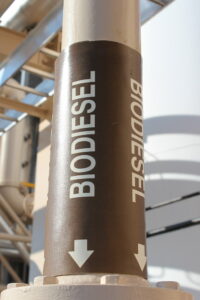APPLICATIONS OF TECHNOLOGY:
- Renewable hydrocarbon production for biofuels such as biodiesel and ethanol
- E. coli that can use or produce H2 with its cellular processes, meaning H2 can now be used as a feedstock for biosynthesis.
ADVANTAGES:
- Simplified and efficient expression system compared to traditional methods that use engineered Cupriavidus necator H16
- Industrial scale fermentation can be done either aerobically or anaerobically, offering production flexibility
BACKGROUND:
Renewable carbon sources using engineered microorganisms provide an alternative to fossil fuels. These biofuels, however, are limited in use due to their production costs and compatibility with conventional engines. Cupriavidus necator, for instance, has been engineered for fatty acid synthesis, from which hydrocarbons can be easily produced. This process, however, requires significant chemical energy. Therefore, there is a need for pathways that improve the availability of chemical energy in microorganisms. Designing microbes that accept new and cheaper feedstocks, like H2, is vital to ensuring energy independence and a biorenewable economy.
TECHNOLOGY OVERVIEW:
Researchers at Berkeley Lab have developed a novel expression system for soluble hydrogenase production in engineered Escherichia coli. Increased expression of soluble hydrogenase also increases nicotinamide adenine dinucleotide phosphate (NADPH) levels, which provides the chemical energy needed for efficient bioproduct output.
The invention includes two plasmids; one for expression of the 13-gene hydrogenase operon, and another plasmid that acts as a delivery vector for incorporation into an E. coli host. The researchers have validated the system through a combination of proteomics, functional analysis, and bioproduct output.
We are not aware of any other expression systems for soluble hydrogenase in E. coli that increase product output.
DEVELOPMENT STAGE:
Proven Principle
PRINCIPAL INVESTIGATORS:
- Jay Keasling
- Steven Singer
- Robert Bertrand
- Justin Panich
FOR MORE INFORMATION:
Microbial Production of Advanced Biofuels
STATUS:
Patent Pending
SEE THESE OTHER BERKELEY LAB TECHNOLOGIES IN THIS FIELD:
